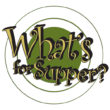 One of my first blogs was about margarine, a subject about which I have some passion. I wondered how it came to be, why a human being with a choice would eat it, and overall my bewilderment that it exists at all. I really just don’t understand why one would eat something avowedly fake and think it was a good thing.
One of my first blogs was about margarine, a subject about which I have some passion. I wondered how it came to be, why a human being with a choice would eat it, and overall my bewilderment that it exists at all. I really just don’t understand why one would eat something avowedly fake and think it was a good thing.
My love of real butter deepened, though, last week when I made a coq au vin for my regular dieting customers (yes, there is indeed a diet that does allow if not celebrate chicken in wine). This French recipe, courtesy of Julia Child, requires that the chicken, mushrooms and onions, all essentials, be cooked in hot butter. Because I am a simple cook and not Julia Child, I worried that my commercial stove top – which could probably render ore into iron – would burn the butter. So I clarified it – a simple process to remove the milk solids that will burn at low temperatures.
For someone who regularly cooks with either olive oil, canola or grape seed oil, this ghee – as it is known in India – is fascinating stuff. The chicken slides around in the pan and gets the right shade of brown without sticking or burning. Hot spots didn’t seem to affect the browning. Mushrooms retain all their nice moisture while cooking to a light tan all over. I was most pleased, and plan to use it again and again. You should too.
And here’s a nice way to make a morning omelet special. Cook it in whatever oil you like, but serve it atop a pat of butter. It will melt, flow and form a delicious base for you to break your evening fast.
Bon appétit.
